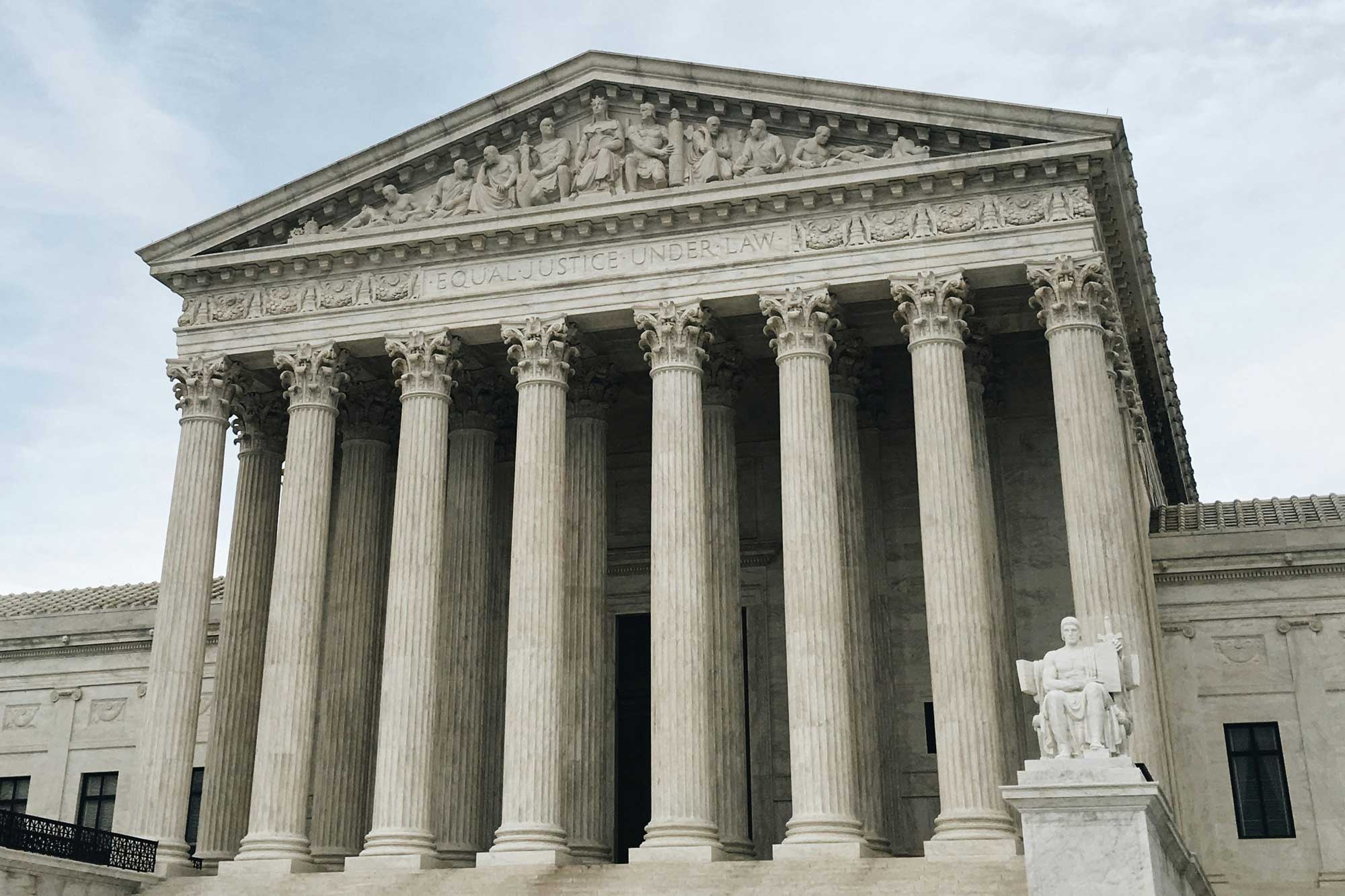On June 28, 2024, the United States Supreme Court (“the Court”) rendered its opinion in Loper Bright Enterprises, et al. v. Raimondo, Secretary of Commerce, et al. (“Loper Bright”).[1] In a 6-3 opinion authored by Chief Justice Roberts, the Court changed how courts will approach cases involving the interpretation of statutes by federal agencies. This opinion, although not involving employment law (it involved rules related to fisheries), will have wide-ranging consequences for courts moving forward when examining interpretations from agencies such as the Equal Employment Opportunity Commission (“the EEOC”) and the Department of Labor (“the DOL”). Before turning to the Court’s analysis, it is important to understand the Chevron doctrine.
In Chevron USA Inc. v. Natural Resources Defense Council, Inc., 476 U.S. 837 (1984) (“Chevron”), the Court rendered an opinion that “sometimes required courts to defer to ‘permissible’ agency interpretations of the statutes those agencies administer—even when a reviewing court reads that statute differently.”[2] The Court established “a two-step framework to interpret statutes administered by federal agencies.”[3] If the preconditions under Chevron were met, the first step was for a court to determine “‘whether Congress has directly spoken to the precise question at issue.’”[4] If congressional intent was clear, that would end the analysis.[5] If not, the second step was for a court to “defer to the agency’s interpretation if it ‘is based on a permissible construction of the statute.’”[6]
In overturning Chevron, the Court first provided a history of Article III of the Constitution, which “assigns to the Federal Judiciary the responsibility and power to adjudicate ‘Cases’ and ‘Controversies’—concrete disputes with consequences for the parties involved.”[7] The Court went on to state, “To ensure the ‘steady, upright and impartial administration of the laws,’ the Framers structured the Constitution to allow judges to exercise that judgment independent of influence from the political branches.”[8] The Court further noted, “The Court also recognized from the outset, though, that exercising independent judgment often included according due respect to Executive Branch interpretations of federal statutes.”[9] This “respect was thought especially warranted when an Executive Branch interpretation was issued roughly contemporaneously with enactment of the statute and remained consistent over time.”[10] According to the Court, “[w]hatever respect an Executive Branch interpretation was due, a judge ‘certainly would not be bound to adopt the construction given by the head of a department.’”[11]
The Court then turned its attention to a thorough review of case law and legislative history in the decades preceding Chevron. The Court asserted that when there was deferential review of an agency’s action, it was limited to “fact-bound determinations[.]”[12] The Court “did not extend similar deference to agency resolutions of questions of law.”[13] Chief Justice Roberts noted that the Court “was far from consistent in reviewing deferentially even such factbound statutory determinations.”[14] In 1946, Congress enacted the Administrative Procedure Act (“APA”), which “codifies for agency cases the unremarkable, yet elemental proposition reflected by judicial practices dating back to Marbury [v. Madison, 5 U.S. 137 (1803)]: that courts decide legal questions by applying their own judgment.” According to the Court, “Chevron, decided in 1984 by a bare quorum of six Justices, triggered a marked departure from the traditional approach.”[15]
According to Chief Justice Roberts, “Chevron cannot be reconciled with the APA, as the Government and the dissent contend, by presuming that statutory ambiguities are implicit delegations to agencies.”[16] The Court rejected the arguments that agencies should be able to resolve ambiguities because they “have subject matter expertise regarding the statutes they administer; because deferring to agencies purportedly promotes the uniform construction of federal law; and because resolving statutory ambiguities can involve policymaking best left to political actors, rather than courts.”[17] Instead, Chief Justice Roberts asserted that “Congress expects courts to handle technical statutory questions.”[18] Courts routinely rely upon the parties and amici (a party not involved in a matter that submits a brief to the court with its permission) to help inform their decisions.[19] The Court went on to state that “delegating ultimate interpretive authority to agencies is simply not necessary to ensure that the resolution of statutory ambiguities is well informed by subject matter expertise. The better presumption is therefore that Congress expects courts to do their ordinary job of interpreting statutes, with due respect for the views of the Executive Branch.”[20] The Court further determined that stare decisis, which governs judicial adherence to precedent, did not bind the Court to continue to follow Chevron.[21] Chief Justice Roberts noted, “Its [i.e., Chevron] flaws were nonetheless apparent from the start, prompting this Court to revise its foundations and continually limit its application.”[22] The Court went on to state, after reviewing the decreasing reliance on Chevron over the past few decades, that “[a]t this point, all that remains of Chevron is a decaying husk with bold pretensions.”[23]
The Court thus overturned Chevron and determined, “Courts must exercise their independent judgements in deciding whether an agency has acted within its statutory authority, as the APA requires. Careful attention to the judgment of the Executive Branch may help inform the inquiry.”[24] The Court concluded by stating, “And when a particular statute delegates authority to an agency consistent with constitutional limits, courts must respect the delegation, while ensuring that the agency acts within it. But courts need not and under the APA may not defer to an agency interpretation of the law simply because a statute is ambiguous.”[25]
Although Loper Bright did not involve employment law, its ramifications will be felt across all federal agencies. Regulations and rules promulgated by the EEOC, the DOL, and other employment-related agencies will come under a new form of scrutiny when challenged. No longer will the agencies be granted deference under Chevron. Instead, courts must conduct a thorough and independent analysis to determine if an agency’s action is legal. Employees and employers will want to monitor the developments as agency regulations and rules face challenges in the future.
If you have any questions or concerns regarding this topic, or any topic related to labor and employment law, please contact us.
[1] The opinion is available at https://www.supremecourt.gov/opinions/23pdf/22-451_7m58.pdf (last visited July 2, 2024).
[2] Loper Bright, at *1.
[3] Id., at *1-2.
[4] Id., at *2 (quoting Chevron).
[5] Id.
[6] Id. (quoting Chevron).
[7] Id., at *7.
[8] Id. (citations omitted).
[9] Id., at *8.
[10] Id. (citations omitted)
[11] Id., at *9 (citation omitted).
[12] Id., at *11.
[13] Id., at *9-10 (emphasis in original).
[14] Id., at *12.
[15] Id., at *18. The decision was 6-0, with Justices Marshall, Rehnquist, and O’Connor taking no part in the consideration or decision of the case. Justices Marshall and Rehnquist were ill, and Justice O’Connor recused herself due to having a financial interest in one of the parties. Thomas W. Merrill, The Story of Chevron: The Making of an Accidental Landmark, 66 ADMIN. L. REV. 253, 270-73 (2014), available at https://scholarship.law.columbia.edu/cgi/viewcontent.cgi?article=1461&context=faculty_scholarship (last visited July 2, 2024).
[16] Id., at *21.
[17] Id., at *24.
[18] Id.
[19] Id., at *24-25.
[20] Id., at *25.
[21] Id., at *29.
[22] Id., at *30.
[23] Id., at *33.
[24] Id., at *35.
[25] Id.
Photo by Kyle Glenn on Unsplash










